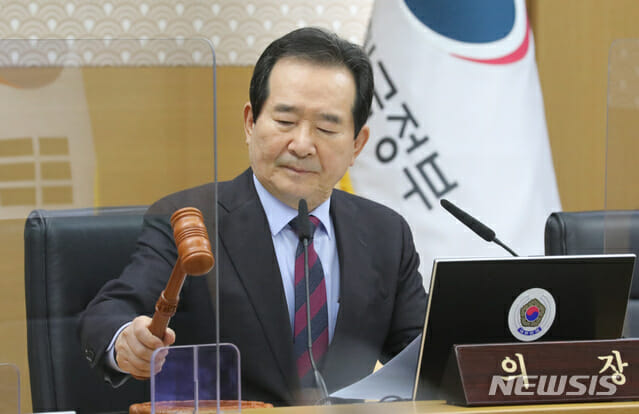
By 2025, electric cars that can run up to 600km on a single charge are expected to be released. In addition, by 2025, the number of eco-friendly vehicles supplied will increase to 2.83 million units, and the price of hydrogen cars from 70 million won will decrease to 50 million won by 2025.
The Ministry of Trade, Industry and Energy announced on the 23rd that it had confirmed the ‘4th Basic Plan for Eco-friendly Vehicles (2021~2025)’ at a State Council meeting presided over by Prime Minister Jeong Sye-gyun.
The 4th Basic Plan for Eco-Friendly Vehicles is a basic plan established and implemented by the Ministry of Industry every five years in order to promote the spread of eco-friendly vehicles and enhance the competitiveness of the automobile industry in accordance with the’Act on the Promotion of Development and Distribution of Environmentally Friendly Vehicles’.
Since last year, the Ministry of Industry has had discussions with industry-academia-research expert forums (about 70 people) and related ministries, and discussed the matter at the National Pending Review and Coordination Meeting on February 18th.
An official from the Ministry of Industry said, “By confirming the strategy of developing and distributing eco-friendly vehicles until 2025 as a legal plan, we secured the power of government-wide implementation, while laying the foundation for practical carbon neutrality such as a technology innovation strategy for carbon neutrality and eco-friendly evaluation for the entire vehicle cycle. I did” he explained.
According to the government’s announcement, the cumulative supply of eco-friendly cars increased 3.6 times from 240,000 in 2016 to 820,000 in 2020. Exports jumped 3.5 times from 78,000 units in 2016 to 280,000 units in 2020.
As a result, Korea ranked 4th in the world for electric vehicle exports, 1st in the world for hydrogen vehicles, and 8th in the world for electric vehicles in 2020.
However, the Ministry of Industry diagnosed that difficulties in charging electric vehicles and hydrogen electric vehicles, non-release of medium-sized and large-sized eco-friendly vehicles, and high vehicle prices still act as obstacles to accelerating the spread of eco-friendly vehicles.
The Ministry of Industry set this year as the first year of the popularization of eco-friendly cars, established a social system that accelerates the spread of eco-friendly cars, pioneered the carbon-neutral era through technological innovation, and derived the acceleration of the transition to a carbon-neutral industrial ecosystem as three strategies.
In particular, in order to open the carbon-neutral era, we will preemptively review the introduction of the automotive full-cycle greenhouse gas assessment system (LCA) and the quality conformance standards for the full life of batteries, and promote innovative technologies that realize carbon neutrality such as green methane and green hydrogen. I decided to do it.
With this basic plan, the Ministry of Industry is planning to leap from a’powerhouse in exporting internal combustion locomotives’ to a’powerhouse in exporting eco-friendly vehicles’. The plan is to increase the annual export volume of eco-friendly cars from 280,000 units last year to 830,000 units in 2025, and increase the export share from 14.6% last year to 34.6% in 2025.

In 2025, not only 1 ton electric trucks but also 3.5 ton electric trucks will be launched, and hydrogen special vehicles such as sprinkler and cleaning trucks, and various electric and hydrogen trucks such as 10 ton and 23 ton hydrogen trucks and forklifts will be put into daily life.
Hydrogen metropolitan buses will be launched in 2022, and hydrogen trams can be used in the city center in 2023.
As for electric vehicle chargers, the number of slow and fast chargers increased from 54,000 and 9,800 units in 2020 to 500,000 and 17,000 units, respectively, and can be charged at all times like a mobile phone, and electric vehicles that can ride up to 600 km with a single charge appeared. It is expected to do.
Related Articles

Baidu, former CEO of Mobike as head of electric vehicle company

Byun Chang-Hum “Investigation of Kona electric car fire is almost over”…

Xiaomi “Researching on electric vehicles… not yet officially entered”

Hyundai Kona Electric Vehicle Recall Plan Submission May Be Postponed
Hydrogen vehicle charging stations will also be accessible from anywhere in the country within 30 minutes, increasing from 70 in 2020 to 450 in 2025, and the price is expected to decrease from 70 million won in 2020 to 50 million won by 2023.
An official from the Ministry of Industry said, “Eco-friendly vehicles are an effective means to reduce greenhouse gases and fine dust in the transportation sector, and are a growth engine that will be responsible for future foods.” “We will implement the 4th Basic Plan for Eco-friendly Vehicles in cooperation with all ministries.”
